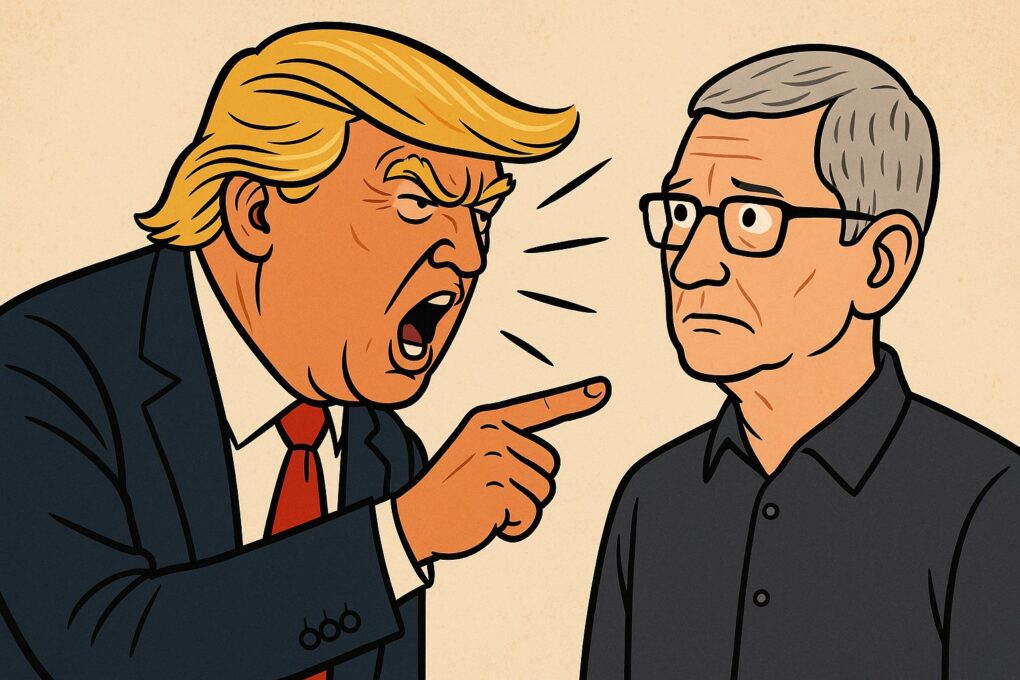President Donald Trump renewed his call on Friday that the iPhone be made in the United States, and threatened Apple with a special 25% tariff if the device gets assembled anywhere else.
Previously, Apple seemed caught up in Trump’s trade war with China, as so many of its products are assembled there. But now Trump’s ire turned specifically on Apple, causing him to threaten import taxes on its products alone.
25% Trump tariff on iPhones
Trump’s trade war with China currently involves 30% import taxes on most products brought into the United States from that country, but previously the tariff went as high as 145%. Apple currently pays a 20% tax for its electronics coming in from China.
Apple’s response to these taxes — and possibly to avoid getting caught in further tariffs increases as U.S./China tensions ratchet up — is to assemble as many iPhones in India as it can.
Getting Apple to move iPhone assembly from China to India wasn’t Trump’s goal. He wants the handset made in America. He posted on Truth Social Friday morning:
“I have long ago informed Tim Cook of Apple that I expect their iPhone’s that will be sold in the United States of America will be manufactured and built in the United States, not India, or anyplace else. If that is not the case, a Tariff of at least 25% must be paid by Apple to the U.S. Thank your for your attention to this matter!”
Does it make sense?
One of Trump’s goals is returning manufacturing of all types to the United States. That’s his reason for imposing tariffs on imports on virtually everything coming into the U.S. But that would take rebuilding a global supply system that companies like Apple spent decades building and invested billions of dollars into. And there are doubts about whether Trump’s goal is even physically possible considering American’s lack of interest in low-paying factory jobs.
“In terms of profitability, it’s way better for Apple to take the hit of a 25% tariff on iPhones sold in the US market than to move iPhone assembly lines back to US,” wrote Ming-Chi Kuo, an analyst with TF International Securities on Friday.
Trump vs. Apple
The International Emergency Economic Powers Act of 1977 (aka IEEPA) gives the U.S. president the ability to unilaterally set tariffs, and Trump uses it to its fullest extent.
Previously, Trump placed tariffs on countries and classes of products. Now he’s singled out a company and a product — the Apple iPhone — with a threat of import taxes to force them to follow his orders. As Supreme Court Chief Justice John Marshall said in a landmark 1819 case, “the power to tax involves the power to destroy.”


